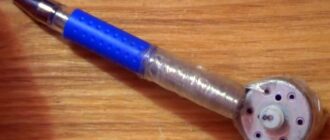Tattoo supplies are the various tools and materials used in the process of tattooing. These supplies include tattoo machines, needles, ink, stencil paper, and other equipment. In this article, we will delve into the different types of supplies that are essential for tattooing and how they are used.
Tattoo machines, also known as tattoo guns, are the primary tool used for tattooing. These machines use electromagnetic coils to move the needle up and down, puncturing the skin and depositing ink into the dermis. There are two main types of tattoo machines: the rotary machine and the coil machine. Rotary machines use a cam and rotor system to move the needle, while coil machines use electromagnetic coils. Both types of machines have their own unique benefits and drawbacks, and the choice of machine will depend on the artist’s preference and style.
Needles are another essential component of tattoo supplies. These needles are used to puncture the skin and deposit ink. There are many different types of needles available, each with their own specific purpose. For example, round needles are used for lining and shading, while magnum needles are used for coloring and filling. Needles come in different sizes, and the size of the needle will depend on the type of tattoo being done. The needles are disposable and should be changed after each use to ensure proper hygiene.
Ink is the next crucial component of tattoo supplies. The ink is the pigmented material that is deposited into the skin to create the tattoo. There are many different types of ink available, including traditional tattoo ink and organic tattoo ink. Traditional tattoo ink is made of a combination of pigments, carrier, and disinfectants, while organic ink is made of natural ingredients such as fruits and vegetables. It’s important to use high-quality ink that is safe and non-toxic to avoid any health hazards.
Stencil paper is used to transfer the design of a tattoo onto the skin. The stencil is a temporary tattoo that is applied to the skin, and the artist uses it as a guide when tattooing. There are various types of stencil paper available, including thermal paper and carbon paper. Thermal paper is a popular choice as it is easy to use and produces a clear stencil.
How do tattoo shops choose tattoo supplies?
Tattoo shops choose their supplies based on a variety of factors, including quality, price, and availability. Quality is of the utmost importance, as the supplies must be sterile and safe for use on the skin. Price is also a consideration, as tattoo shops need to purchase a large quantity of supplies on a regular basis. Availability is also important, as tattoo shops need to ensure they can get the supplies they need in a timely manner.
Where do tattoo artists get their supplies?
Tattoo artists get their supplies from a variety of sources, including tattoo supply companies, online retailers, and local suppliers. Tattoo supply companies are a popular choice as they specialize in providing high-quality tattoo supplies. Online retailers also offer a wide selection of supplies and often have competitive prices. Local suppliers may also offer a limited selection of supplies, but may have the advantage of offering personalized service and more flexible delivery options.
What kind of equipment do I have to buy for a tattoo shop?
To open a tattoo shop, you will need to purchase a variety of equipment, including tattoo machines, needles, ink, stencil paper, and other supplies. You will also need to purchase equipment for cleaning and sterilization, such as autoclaves and disinfectants. Additionally, you will need to purchase furniture and other items for the shop, such as chairs and tables for the artists, and a reception area for clients.
Are tattoo kits important for beginners?
Tattoo kits can be an important tool for beginners as they typically include a variety of supplies and equipment, including tattoo machines, needles, ink, and stencil paper. This can be a convenient way for beginners to start practicing their skills and building a portfolio. However, it is important to note that tattoo kits can vary in quality and may not always include the best or most appropriate supplies for a particular artist. Beginners should also research and compare different kits before purchasing one.
Other essential tattoo supplies include gloves, stencil transfer gel, and aftercare products. Gloves are worn to protect both the artist and the client from cross-contamination. Stencil transfer gel is used to transfer the stencil onto the skin, and aftercare products are used to promote healing and prevent infection.
In conclusion, tattoo supplies are the various tools and materials that are used in the process of tattooing. These supplies include tattoo machines, needles, ink, stencil paper, and other equipment. It’s important to use high-quality and safe supplies to ensure a successful tattoo. It’s also recommended to follow the guidelines of tattooing safety and proper hygiene to prevent any health hazards. The choice of supplies will depend on the artist’s preference and style, and the type of tattoo being done.






